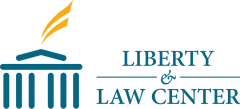I first became involved with the Liberty & Law Center by participating in the Liberty & Law Reading Group as a 1L. I decided to participate in the reading group for several reasons. One reason is that I wanted to engage in more critical evaluation of a text than is typical in 1L courses. Another reason is that I wanted to become more familiar with ideas behind the interaction of liberty and law. Participating in the reading group fulfilled both of these desires. One of the participating professors started every semester by saying that the reading group is not meant to be Bible study for libertarians; it is meant to be a place to engage critically with texts about liberty and law. Sessions usually involved participants collectively trying to make sense of passages that were particularly opaque or that contrasted with typical understandings of the law. By participating in the reading group, I was exposed to works by Friedrich Hayek, Randy Barnett, and Richard Epstein. All of these authors challenge the typical modern legal paradigm, often in ways I had not previously considered. Even though I do not fully agree with every author, I benefited from exposure to their arguments. The readings expanded my thinking and, hopefully, made me less likely to fall into a trap of lazy, clichéd thinking.
I also participated in the Liberty & Law Center’s Discussion Over Division program. That program involves discussions about controversial political issues, either through one-on-one discussions in which participants can choose their own topics or through roundtable discussions with dedicated topics. I really enjoyed these discussions and looked forward to them every year. Part of my enthusiasm comes from a simple enjoyment of politics and policy, but another part stems from the program providing an outlet to discuss positions freely. Although many legal issues discussed in class often have political overtones, discussion is still in the context of a law class. One’s positions, for the most part, need backing from a statute or court decision. In the Discussion Over Division program, we had more freedom to bring in philosophical, economic, or even just personal reasons for a position. Besides the enjoyment I got from participating in the program, I think it was also useful preparation for a future career as a lawyer. Although the discussions were mostly non-legal and were not truly adversarial, I still had to explain my position to someone who was not inclined to agree. As someone who wants to work in public interest law, and therefore might have to communicate with non-jurists such as the media and the public at large, I am glad I got at least a little experience explaining my positions without needing to cite to case law.
In my final year of law school, I had the privilege of participating in the Free Speech Clinic. The clinic counts towards the Public Interest Litigation and Advocacy Concentration, which I pursued. The clinic provided me with hands-on experience in an area I would like to work one day. I got experience researching potential free speech cases and drafting complaints. Through the clinic, I was able to apply in a very real way principles I had discussed a bit more abstractly in other classes. That is only half the benefit of being in the clinic, though. The first half of class was usually devoted to covering a topic with a guest speaker. Guest speakers included practicing attorneys and people who participated directly in famous cases we read. I feel much more confident in pursuing a public interest career because of my participation in the clinic.
Brennan VanderVeen, Public Interest Litigation Program Alumnus and Student Participant
